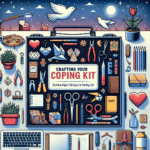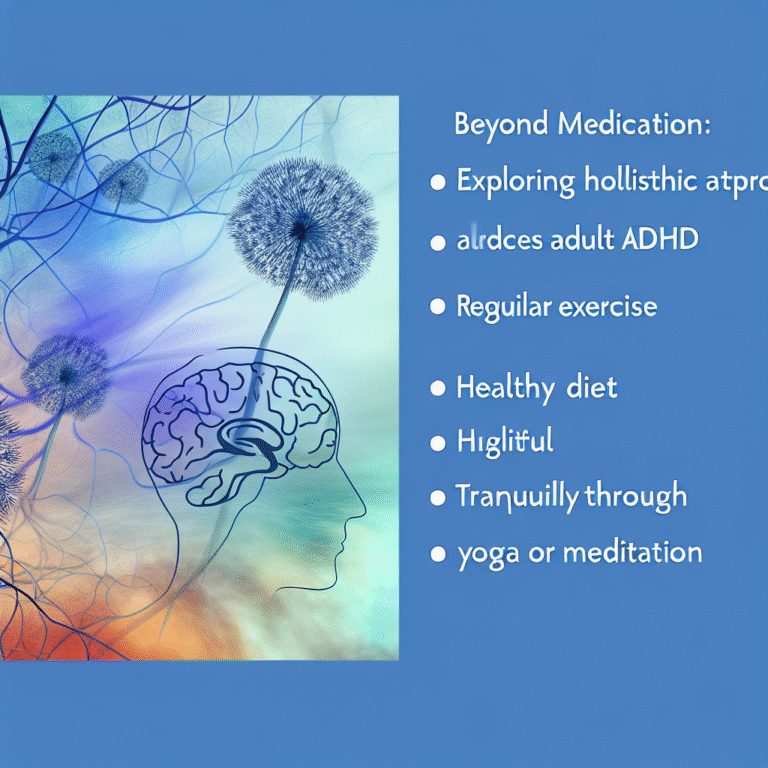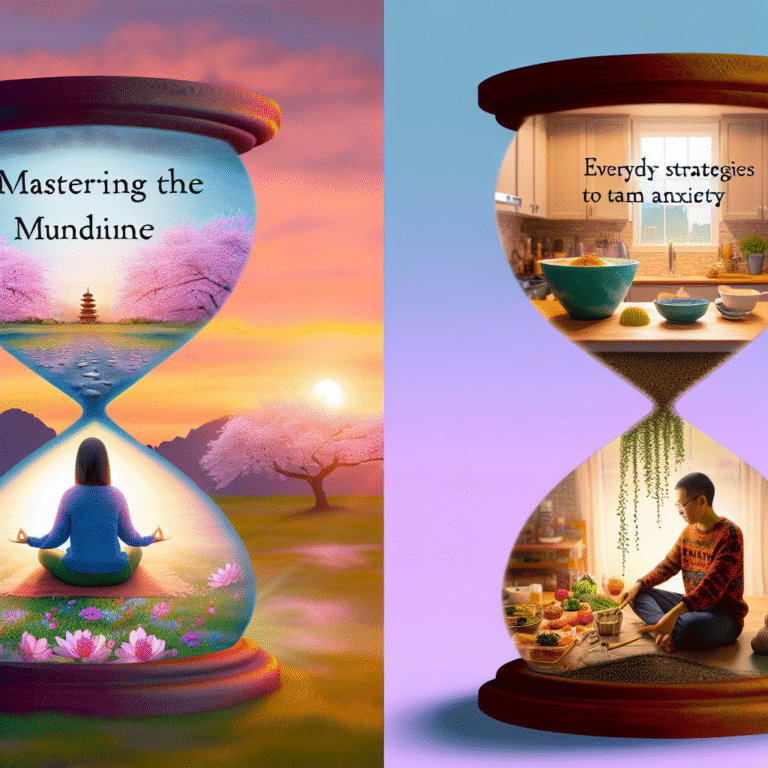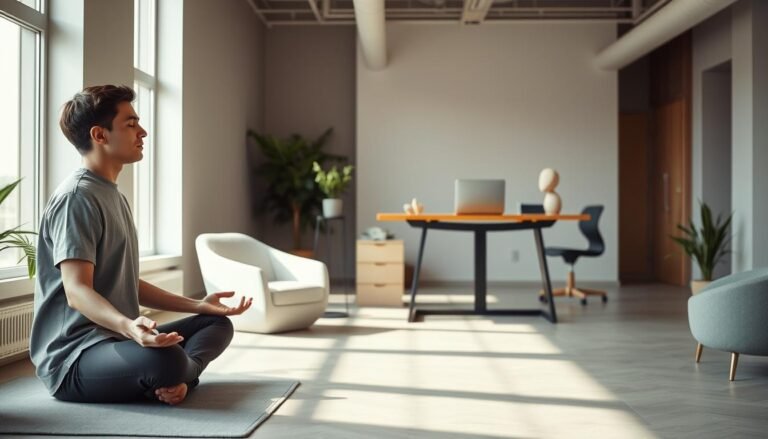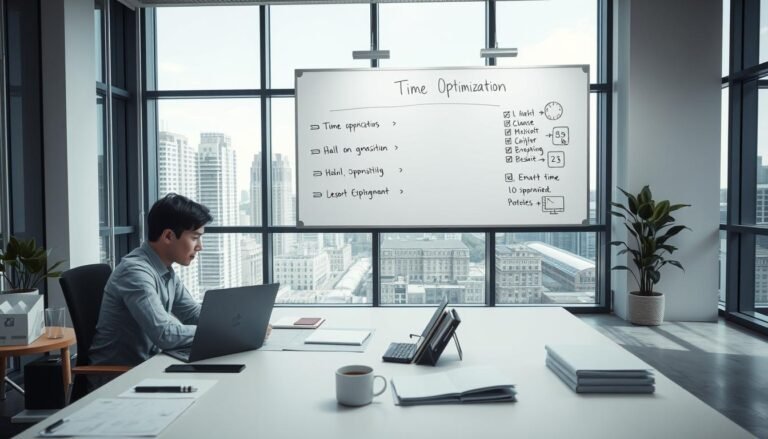
Coping with Anxiety: Simple Techniques for a Calmer Daily Life – Your Ultimate Guide
In a world where the pace of life seems to accelerate each day, anxiety has become a common experience for many. With the pressures of work, personal relationships, and societal expectations, finding a sense of calm can feel like a daunting task. Coping with anxiety: simple techniques for a calmer daily life can empower you to better manage your emotions and reclaim your peace of mind. In this article, we will explore effective strategies to help you navigate anxiety with grace and confidence.
Introduction
Imagine waking up each morning without a feeling of dread or apprehension looming over you. The good news? This isn’t just a pipe dream. Coping with anxiety is not about eliminating all sources of stress; rather, it’s about managing your response to those stressors effectively. By adopting simple yet powerful techniques, you can cultivate a more serene daily experience.
Research indicates that more than 40 million adults in the United States experience anxiety disorders, highlighting the urgency of addressing this silent epidemic. Utilizing practical coping mechanisms can lead to significant improvements in emotional well-being. This article is designed to provide you with actionable insights, case studies, and various coping strategies to help you gain control over anxiety and foster a more peaceful life.
Understanding Anxiety
Before diving into techniques for coping with anxiety: simple techniques for a calmer daily life, it’s essential to understand what anxiety is and how it might manifest. Anxiety is a natural response to stress, characterized by feelings of worry, fear, or apprehension. It can take various forms, from general worries about everyday activities to specific phobias.
The Types of Anxiety
- Generalized Anxiety Disorder (GAD): Persistent and excessive worry about various aspects of daily life.
- Social Anxiety Disorder: Intense fear or anxiety in social situations.
- Panic Disorder: Recurring panic attacks that lead to persistent worry about more attacks.
- Phobias: Irrational fears related to specific objects or situations.
Recognizing the kind of anxiety you may experience is crucial in determining the most suitable coping strategies.
Simple Techniques for Calmer Daily Life
Understanding anxiety is just the first step. Now, let’s explore coping with anxiety: simple techniques for a calmer daily life that can help transform your experience:
1. Deep Breathing Exercises
Breathing is our most natural autonomic function, yet many don’t realize its power in controlling anxiety. Practicing deep breathing can immediately reduce tension and promote relaxation.
How to Practice:
- Find a comfortable position.
- Inhale deeply through your nose for a count of 4.
- Hold your breath for a count of 4.
- Exhale slowly through your mouth for a count of 6.
- Repeat this cycle for a few minutes.
Case Study: Sarah, a 28-year-old teacher, struggled with anxiety, particularly during exams. After learning deep breathing techniques, she practiced them daily, allowing her to approach her teaching assessments with a clearer mindset.
2. Mindfulness and Meditation
Mindfulness refers to maintaining a moment-by-moment awareness of our thoughts, feelings, bodily sensations, and surrounding environment. Meditative practices can ground us and reduce anxiety levels.
How to Get Started:
- Set aside 5-10 minutes daily.
- Focus your attention on your breath or a mantra.
- When your mind wanders, gently bring your focus back.
Relevant Data:
- A study published in the journal JAMA Internal Medicine found that mindfulness meditation can significantly reduce anxiety levels, providing a fertile ground for practicing coping with anxiety: simple techniques for a calmer daily life.
3. Physical Activity
Physical exercise acts as a natural stress reliever, boosting endorphins that can elevate your mood. Regular exercise can help clear your mind, allowing you to release pent-up tension.
Types of Exercise to Consider:
- Walking or running
- Yoga or Pilates
- Dance or martial arts
Analysis: For John, a software developer, incorporating 30 minutes of jogging into his routine dramatically minimized his workplace anxiety. His positive experience highlights the importance of physical movement in coping with anxiety: simple techniques for a calmer daily life.
4. Journaling
Writing down your thoughts and feelings can provide clarity and release pent-up emotions. Journaling often serves as a tool for reflection and self-discovery.
Tips for Effective Journaling:
- Set aside a specific time each day.
- Write freely without worrying about grammar or structure.
- Reflect on what you’re grateful for, as this can shift your focus from anxiety to positivity.
Case Study: Emma, an aspiring writer, turned to journaling during her bouts of anxiety. By consistently documenting her thoughts, she began to recognize patterns that triggered her anxiety, allowing her to develop tailored coping strategies.
5. Establish a Routine
Creating a structured daily routine can provide predictability, reducing anxiety related to uncertainty. By designating time for work, leisure, and self-care, you gain a sense of control over your life.
Steps for Creating a Routine:
- Assess your daily commitments.
- Find time slots for hobbies, relaxation, and social activities.
- Stick to your schedule as closely as possible, while remaining flexible.
Relevant Insight: A well-planned routine allows for the integration of the strategies mentioned above, anchoring them into your daily life and reinforcing coping with anxiety: simple techniques for a calmer daily life.
6. Reach Out for Support
One of the most important yet often overlooked techniques for coping with anxiety is seeking social support. Connecting with friends, family, or support groups can alleviate feelings of isolation.
Suggestions for Seeking Support:
- Talk openly about your feelings with trusted individuals.
- Join a local or online support group for shared experiences.
- Consider professional support from a therapist or counselor.
Case Study: Mark faced overwhelming anxiety due to his work environment. By reaching out to a peer support group, he discovered he wasn’t alone, which in turn provided him with empathy and effective coping strategies.
7. Limit Stimulants
Reducing caffeine and sugar intake is crucial in managing anxiety. These substances can exacerbate symptoms, leading to heightened states of panic and restlessness.
Tips for Limiting Stimulants:
- Substitute coffee with herbal teas.
- Choose whole foods and balanced meals over sugar-laden snacks.
- Monitor your body’s response to these substances.
Analysis: After adjusting his diet, Tim noticed a significant decrease in his anxiety levels. His experience underscores the importance of mindful consumption in coping with anxiety: simple techniques for a calmer daily life.
8. Practice Gratitude
Focusing on gratitude shifts your perspective, helping to rewire your brain to notice the positive aspects of life rather than the negative.
How to Cultivate Gratitude:
- Keep a gratitude journal.
- Share your appreciation with others.
- Reflect daily on what you are thankful for.
Relevant Data: Research from Psychological Science indicates that practicing gratitude can significantly decrease anxiety, highlighting its effectiveness among the methods for coping with anxiety: simple techniques for a calmer daily life.
Conclusion
Coping with anxiety may seem daunting, but by incorporating these simple techniques for a calmer daily life, you can build resilience and cultivate a more tranquil existence. Start small, choose the techniques that resonate with you, and gradually integrate them into your routine. Remember, progress takes time, and asking for help is a sign of strength.
Through your journey, keep in mind that you’re not alone; countless individuals face anxiety, and numerous strategies can help you manage its hold on your life. Embrace the journey to a calmer you, one simple technique at a time.
Frequently Asked Questions (FAQs)
1. How long does it take to see results from these techniques?
Results can vary by individual, but many report feeling calmer within a few weeks of consistently practicing these techniques.
2. Can I cope with anxiety without professional help?
Yes, these techniques can be effective on their own. However, if anxiety persists, seeking professional help is advisable.
3. Are there specific techniques that work better for certain types of anxiety?
Yes, some techniques may resonate more with individuals based on the nature of their anxiety. It’s beneficial to explore different strategies.
4. How can I motivate myself to practice these techniques regularly?
Creating reminders, setting specific times, or pairing techniques with enjoyable activities can help foster consistency.
5. What should I do if these techniques don’t help?
If you find that self-help strategies are not effective, it’s best to consult a mental health professional for guidance and alternative approaches.
Incorporating these powerful techniques into your daily life can help you cultivate resilience, enabling you to tackle anxiety head-on. Begin your journey toward a calmer daily life today!

